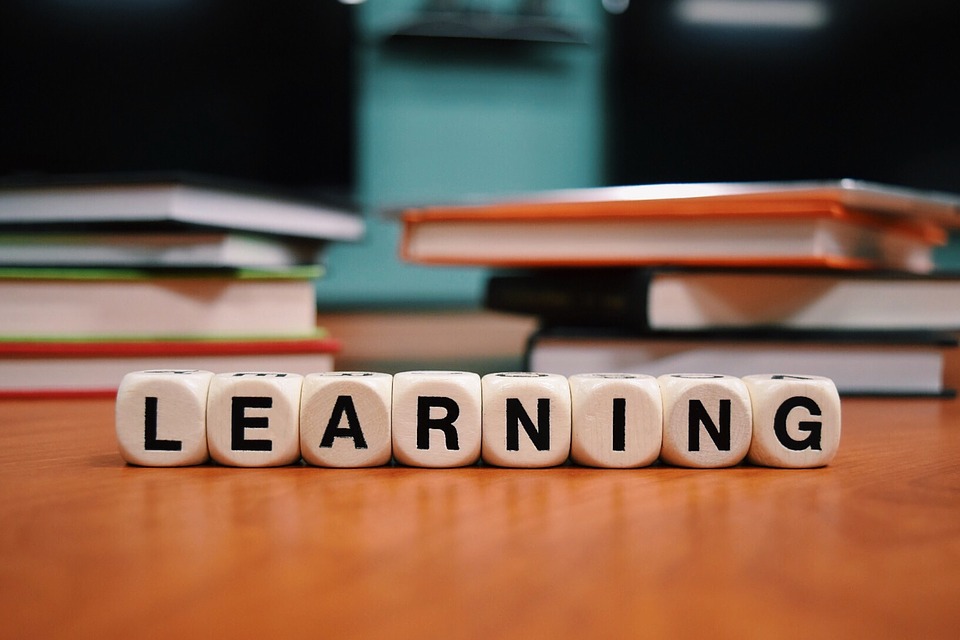
When it comes to eLearning, there are always new buzzwords popping up. This article takes a look at 13 buzzwords that you’ll likely encounter in the eLearning space, including: Lifelong learning, Blended learning, Personalization, Microlearning, Rapid eLearning, Scenarios, mLearning, Gamification, Social learning, “Tin can”, MOOCs , Learning Management System (LMS), lLocalization.
We hope that this article helps you to better understand some of the terms that are throw around when reading up about online learning, assisting you in providing a better learning experience for you and your team.
Lifelong Learning
The term “lifelong learning” refers to the voluntary, ongoing, and self-motivated pursuit of knowledge. This can be for either professional or personal reasons. Lifelong learning enhances active citizenship, social inclusion, personal development, and also improves employability and competitiveness.
Lifelong learning recognizes that learning is not something that is confined to childhood or to the classroom, but is something that takes place all throughout life and in a number of situations.
During the past fifty years or so constant technological and scientific innovation has greatly affected learning styles and needs. Learning today is not divided into school and the workplace, but is now seen as something that takes place each day from the interactions that we have with others and with the world around us.
Blended Learning
The term “blended learning” refers to a formal educational program that offers students the chance to learn through an online delivery system and within a classroom. Students will experience a blend of face to face classroom instruction combined with activities that are computer mediated.
Personalization
Personalization in the eLearning environment refers to allowing students to customize many of the elements of the educational process. This means that students will set goals, work at their own pace, and communicate with other students and their professors in order to customize the entire learning process to their individual needs.
Essentially, the student is in charge of managing their own personal learning and can customize their experience as they have a direct say in the content and processes that are provided. Students have the chance to learn what they want to, when they want to, and even have a say in how they want to learn it.
Microlearning
The term microlearning refers to learning in smaller steps. This goes along with more traditional eLearning. Elements of microlearning include short term lessons, coursework, or projects that have been designed to provide the student with smaller amounts of information.
Microlearning essentially involves breaking down broader units into smaller chunks that are more digestible. This type of learning is often best utilized at points where a student needs the information or when the student is going to be receptive of receiving the particular information.
Scenarios
In learning we use scenarios to put the learner in a real life situation to reinforce the practical uses of training.
By forcing the learning into problem solving situations, the student is much more likely to be able to retain the information that they are learning, and then apply it to their everyday job without needing to return to resources to assist them. Scenarios need to be adapted specifically for a particular audience, but can be one of the most effective tools associated with creating learning material.
mLearning
The term mLearning refers to any type of learning that happens when a student is not at a predetermined location. It also refers to any type of learning that happens when the student takes advantage of learning opportunities on a mobile device.
Gamification
Social Learning
- Demonstrate changes of understanding take place within the individuals involved
- Demonstrate that these changes go beyond the single person and becomes situated in a wider social unit or community of practice
- It must occur through social interactions between people in a social network.
Tin Can API
Past specifications had limitations and were difficult. The Tin Can API is flexible and simple. Some of the things that can be communicated and recognized with the Tin Can API include:
- Collaborative learning
- Offline learning
- Social learning
- Experiential learning
- Real world activities
- Serious games
- Virtual worlds
- Simulations
- Mobile learning
Note: this is a community driven API and is free to implement.
MOOCs
MOOC stands for Massive Open Online Course. These deliver open access to different types of learning materials. An MOOC tends to be focused on community using forums for online discussions about a topic. The content typically will contain a number of different resources and activities that may be automated, or offer a self or peer assessment.
Learning Management System
An Learning Management System (LMS) is a software application that provides infrastructure and framework for the facilitation of delivery, tracking, and reporting of training online.
Localization
Localization is translating eLearning content to any language and regional context. For example, in Spain, an American-based company might need their advertising images to be changed in order to be more culturally congruent to the Spanish public.
These are just a few of the buzzwords you’ll encounter in the eLearning space. To find out how your company can improve from eLearning resources, make sure you check back in with the Go1 Blog regularly!





